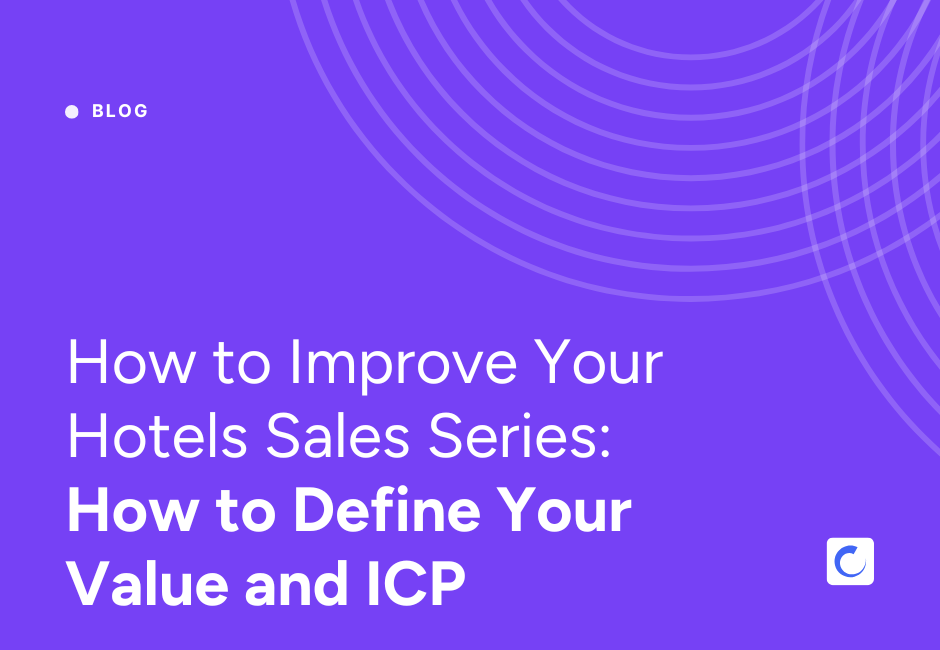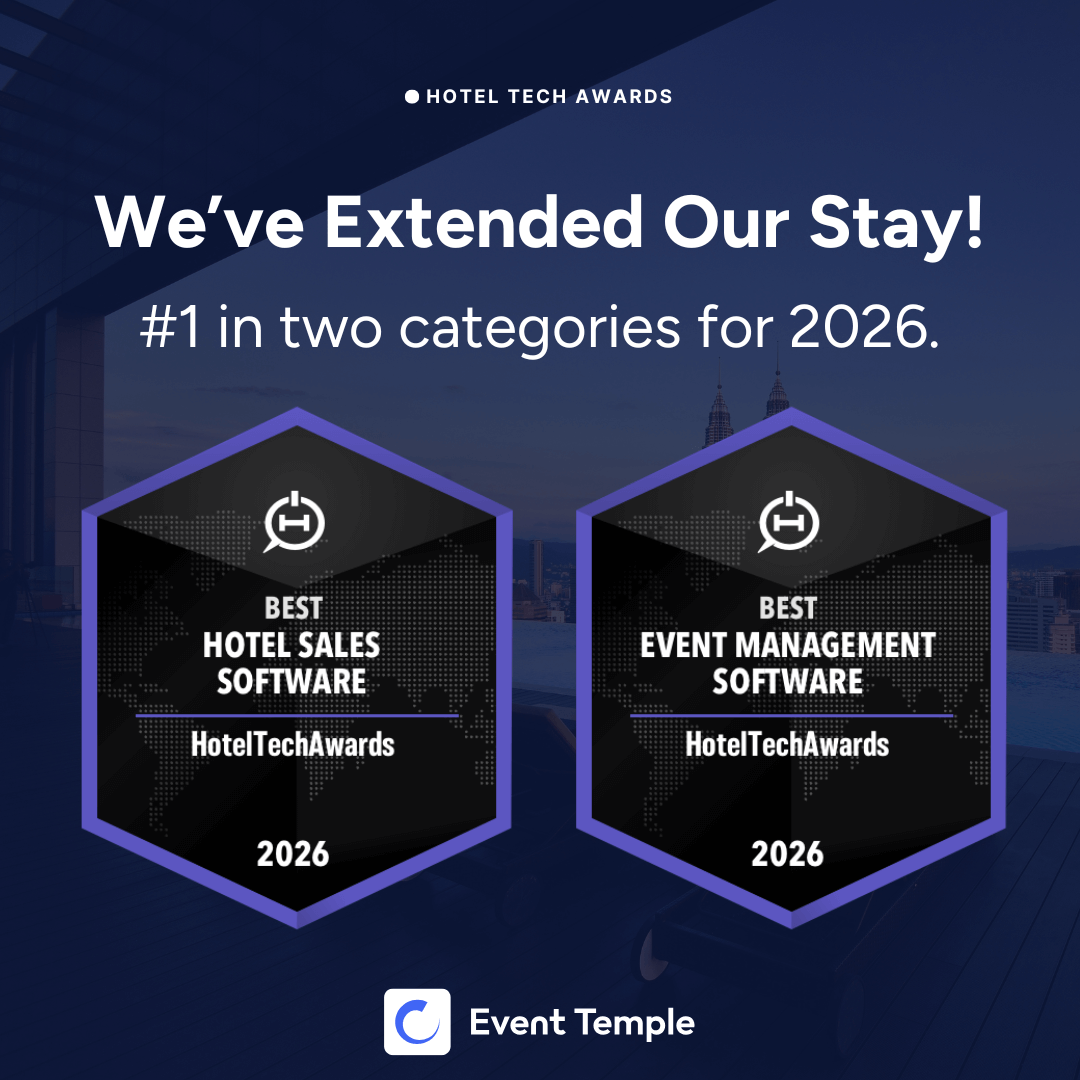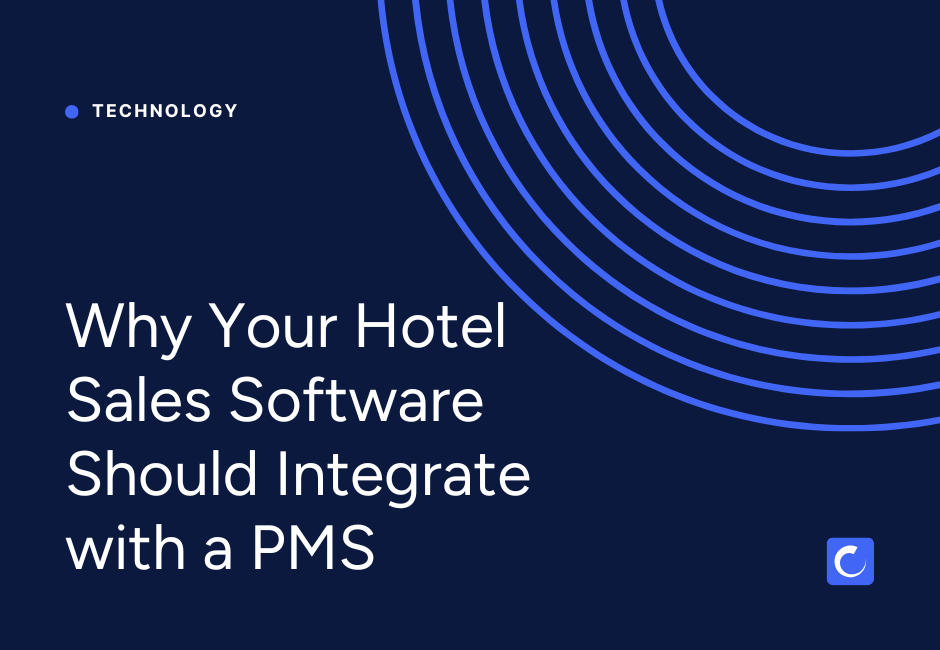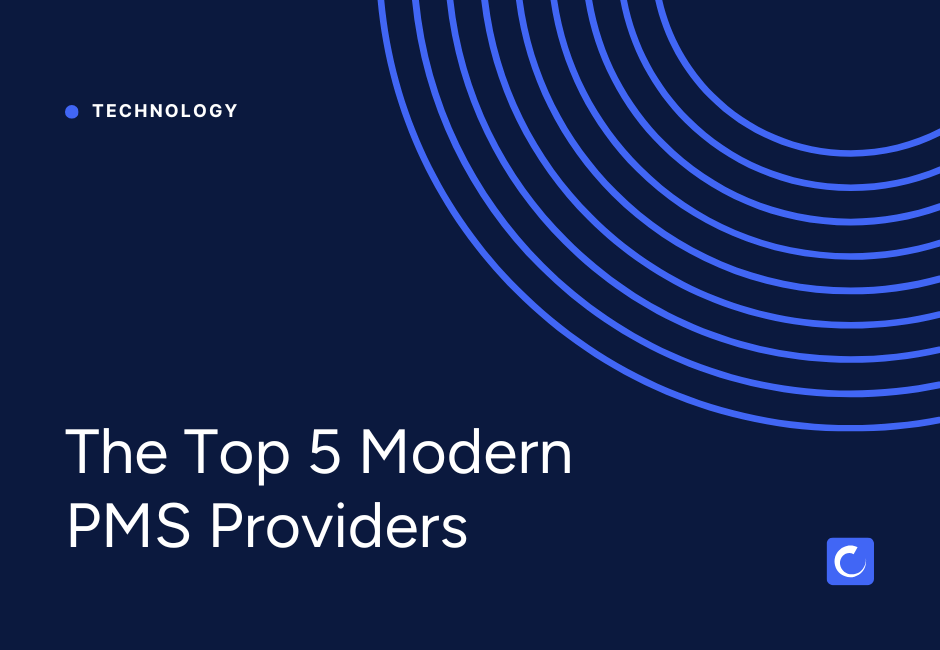
This is the first in our series on How to Improve Your Hotel’s Sales. To be the first to get Part 2, sign up here
Bottom Line Up Front: Successful hotel sales isn't about casting the widest net—it's about identifying your ideal customer profile (ICP) and crafting a compelling value proposition that speaks directly to their needs. Hotels that focus on their niche audience see higher conversion rates, better ADR, and more sustainable revenue growth.
The hospitality industry is experiencing remarkable growth, with average daily rate (ADR) expected to grow by 1.8%. However, this growth also means increased competition. To succeed in today's market, hotel sales teams must move beyond generic marketing approaches and develop a laser-focused strategy built around their ideal customer profile and unique value proposition.
Why Defining Your Hotel's ICP Is Critical for Sales Success
Before you can effectively grow your hotel sales, you need absolute clarity on what makes your property unique and who benefits most from those differentiators. Too many sales teams skip this crucial step, leading to scattered efforts and mediocre results.
The numbers speak for themselves. 79% of generated leads don't convert into sales, often because hotels are targeting the wrong audience or failing to communicate their unique value effectively. By defining your ICP, you can focus your efforts on prospects most likely to book and pay premium rates.
The Cost of Unfocused Hotel Sales Strategies
Without a clear ICP, hotel sales teams often fall into these common traps:
- High acquisition costs: Trying to appeal to everyone results in inefficient marketing spend
- Low conversion rates: Generic messaging fails to resonate with decision-makers
- Price competition: Without differentiation, you're forced to compete solely on price
- Missed revenue opportunities: You overlook high-value segments that align perfectly with your property
Understanding Your Hotel's Unique Value Proposition
Your value proposition extends far beyond your amenities list. Consider what specific problems you solve for event planners and group bookings. Maybe you're the only property in town with sufficient bandwidth for large hybrid events. Perhaps your culinary team specializes in authentic international cuisine perfect for multicultural corporate gatherings. Or your location offers the ideal retreat setting for strategic planning sessions.
Key Areas to Evaluate Your Hotel's Value
Location and Accessibility
- Proximity to airports, business districts, or attractions
- Transportation infrastructure
- Parking availability and convenience
Meeting and Event Capabilities
- Room configurations and capacities
- Technology infrastructure (especially important as 70% of meetings in 2024 are expected to have 200 attendees or less)
- Catering and dining options
- Support services and event coordination
Guest Experience Differentiators
- Service levels and staff expertise
- Unique amenities or features
- Brand reputation and guest satisfaction scores
- Sustainability initiatives (increasingly important as travelers prioritize eco-friendly options)
Operational Excellence
- Booking and communication processes
- Flexibility in contract terms
- Response times and customer service
- Integration with hotel sales platforms for streamlined operations
How to Identify Your Ideal Customer Profile
Understanding your ideal customer profile is equally critical for effective hotel lead generation. Analyze your most profitable events from the past two years. Which industries consistently book with you? What's the typical attendee count? How far in advance do they plan? This data shapes everything from your prospecting strategy to your proposal structure.
Step 1: Analyze Your Historical Data
Start by conducting a comprehensive analysis of your past bookings in your sales and catering platform:
Review Your Most Profitable Segments
- Identify the top 20% of accounts that generate 80% of your revenue
- Look at industry verticals, company sizes, and event types
- Calculate lifetime value for repeat customers
- Assess seasonal booking patterns
Examine Booking Behaviors
- Average lead times for bookings
- Preferred communication channels
- Decision-making processes and stakeholders involved
- Common objections and deal-breakers
Step 2: Market Trend Analysis
Market trends are crucial in helping hospitality leaders identify new hotel sales leads. Stay informed about industry shifts that could impact your target markets.
Monitor Industry Growth Sectors Current data shows that certain industries are experiencing increased meeting activity.
Track Meeting Size Trends With about 70% of meetings expected to see 200 attendees or less, properties that excel at intimate gatherings and smaller corporate events should focus their ICP accordingly.
Step 3: Create Detailed Buyer Personas
Develop 3-5 detailed personas representing your ideal customers:
Corporate Event Planners
- Company size and industry
- Typical budget ranges
- Decision-making authority
- Preferred booking timelines
- Key pain points and priorities
Association Meeting Planners
- Member demographics
- Annual meeting patterns
- Budget considerations
- Venue selection criteria
Wedding and Social Event Coordinators
- Event size and style preferences
- Seasonal booking patterns
- Service level expectations
- Budget ranges and payment terms
Defining Your Value Proposition for Each ICP Segment
Once you've identified your ideal customers, craft targeted value propositions that speak directly to their needs and challenges.
Align Your Messaging with Customer Pain Points
For Cost-Conscious Planners Emphasize value-driven packages, inclusive pricing, and ROI benefits. Highlight how your property helps them maximize their budget without compromising quality.
For Quality-Focused Clients Showcase your premium amenities, exceptional service standards, and track record of successful events. Include testimonials and case studies that demonstrate your expertise.
For Efficiency-Seekers Stress your streamlined booking process, dedicated event coordination, and technology solutions that make planning easier. Consider offering an easy to fill out request a booking process through systems like Duetto’s Openspace
Implementing Your ICP Strategy in Hotel Sales Operations
Optimize Your Lead Generation Approach
Focus your hotels lead generation efforts on channels where your ideal customers are most active:
Digital Marketing Alignment
- Target LinkedIn campaigns to specific industries and job titles
- Create content marketing that addresses your ICP's challenges
- Optimize your website for keywords your ideal customers search for
Partnership Development
- Build relationships with industry associations in your target sectors
- Develop referral programs with complementary vendors
- Participate in trade shows and events where your ICP congregates
Streamline Your Sales Process
Qualification Framework Develop a systematic approach to qualify leads based on your ICP criteria:
- Industry fit and company size
- Budget alignment with your pricing
- Decision-making authority
- Timeline compatibility
- Geographic considerations
Proposal Customization Create templated proposals that can be quickly customized for each ICP segment, highlighting the most relevant value propositions and addressing common concerns.
Leverage Technology for Better Results
Modern hotel RFP solutions and CRM systems enable more targeted and efficient sales processes. Look for platforms that allow you to:
- Segment leads by ICP characteristics
- Track engagement with persona-specific content
- Automate follow-up sequences based on customer type
- Measure conversion rates by segment
Measuring Success and Refining Your Approach
Key Performance Indicators
Track these metrics to evaluate the effectiveness of your ICP strategy:
Lead Quality Metrics
- Conversion rate by customer segment
- Average deal size by ICP category
- Sales cycle length for different personas
- Customer acquisition cost by channel
Revenue Performance
- ADR improvements in target segments
- Revenue per available room (RevPAR) growth
- Repeat booking rates by customer type
- Upselling success rates
Continuous Improvement Process
Quarterly Reviews
- Assess booking patterns and customer feedback
- Analyze competitive positioning in target segments
- Update personas based on new market data
- Refine value propositions based on customer responses
Annual Strategy Updates
- Conduct comprehensive market analysis
- Evaluate the effectiveness of current ICP definitions
- Identify emerging opportunities and threats
- Adjust targeting strategy based on performance data
Best Practices for Hotel Sales Teams
Team Training and Alignment
Ensure your entire sales team understands and can articulate your ICPs and value propositions:
Regular Training Sessions
- Role-play scenarios with different customer types
- Practice handling objections specific to each segment
- Share success stories and case studies
- Update team on market trends and competitive intelligence
Sales Tools and Resources
- Develop persona-specific sales presentations
- Create objection-handling guides for each ICP
- Maintain updated competitive analysis documents
- Provide easy access to relevant case studies and testimonials
Integration with Marketing Efforts
Align your hotel sales and marketing initiatives:
Content Strategy
- Develop thought leadership content for each target industry
- Create case studies showcasing successful events for each ICP
- Optimize website content for persona-specific search terms
- Maintain active social media presence in relevant industry groups
Lead Nurturing Programs
- Design email sequences tailored to each customer type
- Provide valuable resources that address specific pain points
- Track engagement and adjust messaging based on response rates
- Coordinate with sales team for timely follow-up
The Role of Technology in ICP-Focused Hotel Sales
CRM and Sales Platform Integration
Effective hotel sales lead generation requires sophisticated technology support. Modern hotel sales platforms enable teams to:
- Automatically score leads based on ICP fit
- Track customer journey across multiple touchpoints
- Provide real-time insights into prospect behavior
- Facilitate seamless handoffs between marketing and sales
Data Analytics and Insights
Leverage data analytics to continuously refine your ICP strategy:
Predictive Analytics Use historical booking data to identify patterns and predict future opportunities within your target segments.
Performance Tracking Monitor key metrics across different customer segments to identify the most profitable ICPs and adjust resource allocation accordingly.
Market Intelligence Stay informed about industry trends, competitor activities, and market shifts that could impact your target customers.
Conclusion: Focusing for Greater Hotel Sales Success
In an increasingly competitive market, trying to be everything to everyone is a recipe for mediocrity. By clearly defining your hotel's unique value proposition and ideal customer profile, you can focus your sales efforts where they'll have the greatest impact.
Remember that your ICP isn't static—it should evolve as market conditions change and your property develops new capabilities. Regular review and refinement of your customer profiles and value propositions will ensure your sales strategy remains effective and profitable.
The hotels that thrive in today's market are those that understand their unique strengths and target customers who value those differentiators most. By implementing a focused, data-driven approach to customer targeting and value communication, your sales team will close more deals, command higher rates, and build lasting relationships with profitable accounts.
Ready to transform your hotel sales approach? Start by analyzing your most profitable accounts from the past year, identifying common characteristics, and developing targeted value propositions for each segment. With the right strategy and tools, you'll see immediate improvements in lead quality and conversion rates.



